
You are using an outdated browser. Please upgrade your browser to improve your experience.
I’d venture a guess that most Americans (like us, before we started this project) can’t name more than one or two amendments to the Constitution, let alone remember that there are 27 of them. But these 27 “insertions” to our founding document outline our basic rights as Americans. Not only that, they show a country changing and evolving and re-imagining itself; striving (and not always succeeding) to be better.
With that in mind, the team at More Perfect challenged ourselves to come up with a way to give these words the swagger they deserve. So we invited some of the best musicians in the world to create songs inspired by each of the 27 amendments; a kind of “Schoolhouse Rock!” for the 21st Century.
These songs are a small way to say that these words matter.
We’re calling it “27: The Most Perfect Album,” and I hope it ends up on some playlists, maybe in a classroom or two. Thanks to the National Constitution Center for partnering with us on the essays below. Most of all, we’re deeply indebted to all the musicians below that gave their time, talents, and energies to the project. Enjoy!
Jad Abumrad - host, Radiolab & More Perfect
P.S. Click here to turn on autoplay, and listen to the album as you read
Joey Stylez, Cherry Glazerr
Sateen, Flor de Toloache, Michael Richard Klics
Palehound, They Might Be Giants
Sons of an Illustrious Father
Adia Victoria, Nana Grizol
The Octopus Project
Kash Doll feat. Ant Clemons, Andre “Dre” Harris, Bette Smith
Aisha Burns, Nnamdi Ogbonnaya
Stef Chura, Donny Dinero (of Mail The Horse)
Duke Ellington School of the Arts, The Mellow Tones (arr. Mark G. Meadows)
Kevin Morby, Caroline Shaw
FREE EXPRESSIONWhat it says: "Congress shall make no law respecting an establishment of religion, or prohibiting the free exercise thereof; or abridging the freedom of speech, or of the press; or the right of the people peaceably to assemble, and to petition the Government for a redress of grievances." Read the full amendment at constitutioncenter.org
What it means: The First Amendment protects Americans’ right to think, speak, and act freely, even when they are criticizing the government. It guarantees the freedom of religion, speech, the press, and assembly. It also guarantees the right to ask the government to address our complaints. (Ratified December 15, 1791)
One thing to remember about the First Amendment is that it secures your freedoms (of speech, and of religion) from government action. "Congress shall make no law. " means that within reason, the government can’t stop you from expressing yourself. There are limits to that protection, though. A lot of the controversy surrounding free speech today has to do with things that are actually outside the Amendment's control altogether: when private companies limit speech on their privately-owned platforms like Facebook, Twitter, etc.
Many people overlook the last freedom of the First Amendment, the right to petition the government for redress of grievances. Without the right to ask the government to make changes, there’s a good chance many of the later amendments might not have ever happened.
Read the lyrics to Joey Stylez's song here and Cherry Glazerr's song here.
RIGHT TO BEAR ARMSWhat it says: "A well regulated Militia, being necessary to the security of a free State, the right of the people to keep and bear Arms, shall not be infringed." Read the full amendment at constitutioncenter.org
What it means: The Second Amendment protects an individual’s right to bear arms and provide for the lasting defense of the Republic by state militias. (Ratified December 15, 1791)
Back during the Revolutionary War, the American side was scrappy. We didn’t have professional soldiers at first, so we had to make an army out of regular, everyday people. Joe had a rifle on his farm, and then Joe became a soldier. The Founders saw a world where that might need to happen again, and they wanted to make sure our future militia had guns. People today debate the extent to which the Second Amendment protects gun rights now that Joe's rifle is no longer needed as part of the military. The Supreme Court decided in District of Columbia v. Heller that the Second Amendment gives you an individual right to possess and carry a gun.
This right is not unlimited, meaning that the government can impose various regulations and restrictions on firearms and similar weapons, but the extent to which the government can do that without infringing on this right is still hotly debated.
Read the lyrics to Sateen's song here, Flor de Toloache's song here, and Michael Richard Klics's song here.
QUARTERING OF SOLDIERSWhat it says: "No Soldier shall, in time of peace be quartered in any house, without the consent of the Owner, nor in time of war, but in a manner to be prescribed by law." Read the full amendment at constitutioncenter.org
What it means: The Third Amendment restricts the quartering (or keeping) of soldiers in private homes without the owner’s consent. (Ratified December 15, 1791)
This might seem like a strange protection today, but in colonial times, being forced to let British troops stay in your house was a very real possibility. Imagine if a soldier could come crash on your couch, eat all your snacks, and you couldn’t kick them out! The Founders wrote this amendment to promise that the U.S. government could never make citizens house soldiers in peacetime without their consent (or in wartime without a law passed by Congress).

In contrast to the first two amendments of the Bill of Rights, this amendment hasn’t typically been considered controversial and is rarely contested in the courts. However, some scholars use it to show that the Framers intended a constitutional right to privacy and therefore argue that a person’s private home should be free from government interference.
Read the lyrics to Palehound's song here and They Might Be Giants's song here.
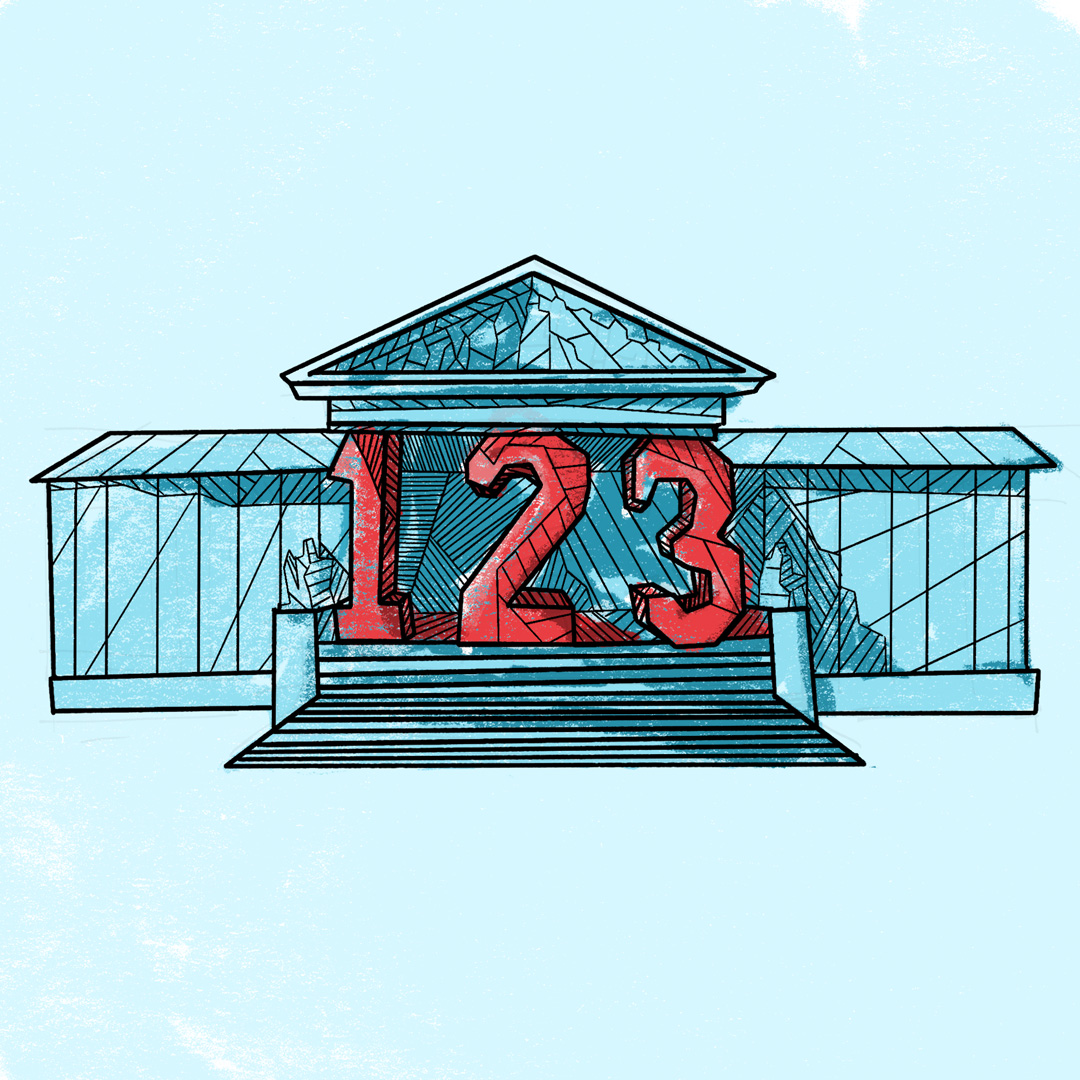
What it says: "The right of the people to be secure in their persons, houses, papers, and effects, against unreasonable searches and seizures, shall not be violated, and no Warrants shall issue, but upon probable cause, supported by Oath or affirmation, and particularly describing the place to be searched, and the persons or things to be seized." Read the full amendment at constitutioncenter.org
What it means: The Fourth Amendment prohibits the government from making unreasonable searches and seizures of private property. (Ratified December 15, 1791)
The Fourth Amendment tries to strike a balance between the government’s need to provide for social order with the individual’s right to live in their home safe from most governmental interference. Under this amendment, the government must have a compelling reason to search or seize you or your home. This amendment prohibits the government from making unreasonable searches and seizures of private property. An unreasonable “search and seizure” can be something obvious, like a police officer entering someone’s home without a warrant, or it can be subtler, like putting a wiretap on a person’s phone.
The word “unreasonable” in the Fourth Amendment obviously leaves a lot of room for interpretation, and the Supreme Court has tried to define what constitutes a reasonable search or seizure, in all sorts of Fourth Amendment contexts. For example, in the case Graham v. Connor the Court tried to bring more objectivity into cases of excessive use of force by police officers. Some people think it worked, while others think it did the opposite, creating more subjectivity by taking the point of view of the officer, not the civilian.
GRAND JURY, DOUBLE JEOPARDY, SELF-INCRIMINATION, DUE PROCESS, TAKINGSWhat it says: "No person shall be held to answer for a capital, or otherwise infamous crime, unless on a presentment or indictment of a Grand Jury. nor shall any person be subject for the same offence to be twice put in jeopardy of life or limb; nor shall be compelled in any criminal case to be a witness against himself, nor be deprived of life, liberty, or property, without due process of law; nor shall private property be taken for public use, without just compensation. " Read the full amendment at constitutioncenter.org
What it means: The Fifth Amendment protects individuals from several types of government abuse. It guarantees the right to a grand jury in criminal cases; no one can be tried for the same crime twice; if the government takes your land for public use, it must pay a fair price; and no one can be forced to testify against themselves. It also guarantees that a person will not have their life, liberty, or property taken without due process of law. (Ratified December 15, 1791)
Most people probably know the Fifth Amendment because it's what the bad guys on TV say when they can't fool the police: "I plead the Fifth." In that case, it means, "I’m not going to say anything that might incriminate myself in this crime I committed."
But we shouldn't think of the Fifth Amendment as synonymous with guilt. It's actually one of the most important innovations in the history of law and is a bedrock protection for innocent people. History is littered with examples of innocent people being beaten or tortured until they confess to crimes that they did not commit. The Fifth Amendment is supposed to make that impossible or at the very least difficult to pull off.
There are other important protections in this amendment for people accused of crimes. The protection from "double jeopardy" is here. That means that for most criminal cases the government can't try you twice for the same crime.
The right to a "grand jury" is also here. That is supposed to mean that only your fellow citizens, embodied by the grand jury, can charge you with a crime, not simply an angry prosecutor with an ax to grind.
At its most basic level, “due process” rights guarantee each citizen fair and equal access to all parts of the legal system. Without “due process,” the government could be able to force you to testify against yourself, send you to trial without an attorney to represent you, or deny you a fair trial all together.
Read the lyrics to Torres's song here.
RIGHT TO SPEEDY, PUBLIC, AND IMPARTIAL TRIAL BY JURY, WITNESSES, COUNSELWhat it says: "In all criminal prosecutions, the accused shall enjoy the right to a speedy and public trial, by an impartial jury of the State and district wherein the crime shall have been committed, which district shall have been previously ascertained by law, and to be informed of the nature and cause of the accusation; to be confronted with the witnesses against him; to have compulsory process for obtaining witnesses in his favor, and to have the Assistance of Counsel for his defence." Read the full amendment at constitutioncenter.org
What it means: The Sixth Amendment outlines specific legal processes that each citizen is guaranteed when they are charged with a criminal offense, including the right to counsel and the right to a speedy and public trial judged by an impartial jury of their peers. (Ratified December 15, 1791)
https://www.wnycstudios.org/st. The Sixth Amendment has to do with criminal prosecution: what rights someone has if they’re accused of a crime. People can't be held in jail indefinitely and must be tried in public. People have the right to be tried in front of a jury. The right to confront accusers and witnesses establishes the practice of "cross-examination." Without the Sixth Amendment a witness could make a speech in front of a jury, and the person accused of the crime wouldn’t be able to ask any questions challenging that account of things. Criminal defendants also have the right to a lawyer. In a series of Supreme Court cases starting with Powell v. Alabama in 1932, the right to an attorney was extended to include defendants unable to afford legal fees. However, some people believe that the inexperience and heavy caseloads of court-appointed attorneys put poor defendants at a critical disadvantage in court.
Read the lyrics to Sons of an Illustrious Father's song here.

What it says: "In Suits at common law, where the value in controversy shall exceed twenty dollars, the right of trial by jury shall be preserved, and no fact tried by a jury, shall be otherwise reexamined in any Court of the United States, than according to the rules of the common law." Read the full amendment at constitutioncenter.org
What it means: The Seventh Amendment extends the right to a jury trial to parties in certain federal civil cases. In these types of cases, no crime has been committed. Instead, one party is suing another for money damages or an injunction. (Ratified December 15, 1791)
While the Sixth Amendment deals with criminal cases, the Seventh Amendment deals with civil ones. In civil cases, no criminal law has been violated. While criminal cases tend to involve actions that are considered to be harmful to society as a whole, civil cases usually deal with private disputes between persons or organizations.
If someone loses their civil case, they won’t go to jail. Most likely they’ll have to pay damages or make up for what they did in some other, less serious way. Still, protection from government overreach is necessary when charged with these offenses, and the Seventh Amendment preserves the right to a jury for civil cases. It is worth noting, however, that because civil disputes are allowed to settle out of court (and most do), they often never make it to the jury trial phase. In addition, civil cases in state court do not require jury trial.
Read the lyrics to Adia Victoria's song here and Nana Grizol's song here.
What it says: "Excessive bail shall not be required, nor excessive fines imposed, nor cruel and unusual punishments inflicted." Read the full amendment at constitutioncenter.org
What it means: The Eighth Amendment prohibits the federal government from imposing excessive bail or fines and protects those who are convicted of crimes from "cruel and unusual" punishment. (Ratified December 15, 1791)
What makes a punishment “cruel and unusual?” That seemingly simple question actually leads to so many more: How uncommon does a punishment have to be before it is considered “unusual?” Who gets to define “cruel?” (Do we take a poll? Do we ask a doctor?) Is it cruel if we can't see the pain being inflicted? (For example, if we paralyze a person first, as we do with lethal injections, is that less cruel than if we can see the person writhing in pain?)
Furthermore, what does “and” mean in this context? Is a cruel punishment that is entirely commonplace prohibited by the Eighth Amendment? Does an unusual punishment that's not otherwise cruel pass constitutional muster?
The Eighth Amendment also prohibits "excessive" bail and fines, but given that we can't agree on what "cruel" means, you can imagine the debate over what constitutes "excessive."
Courts are kind of all over the map on these questions. The federal death penalty was briefly banned in the 1970s; now it is considered constitutional, but only some states allow it and only certain kinds of killings are approved.
Read the lyrics to High Waisted's song here.
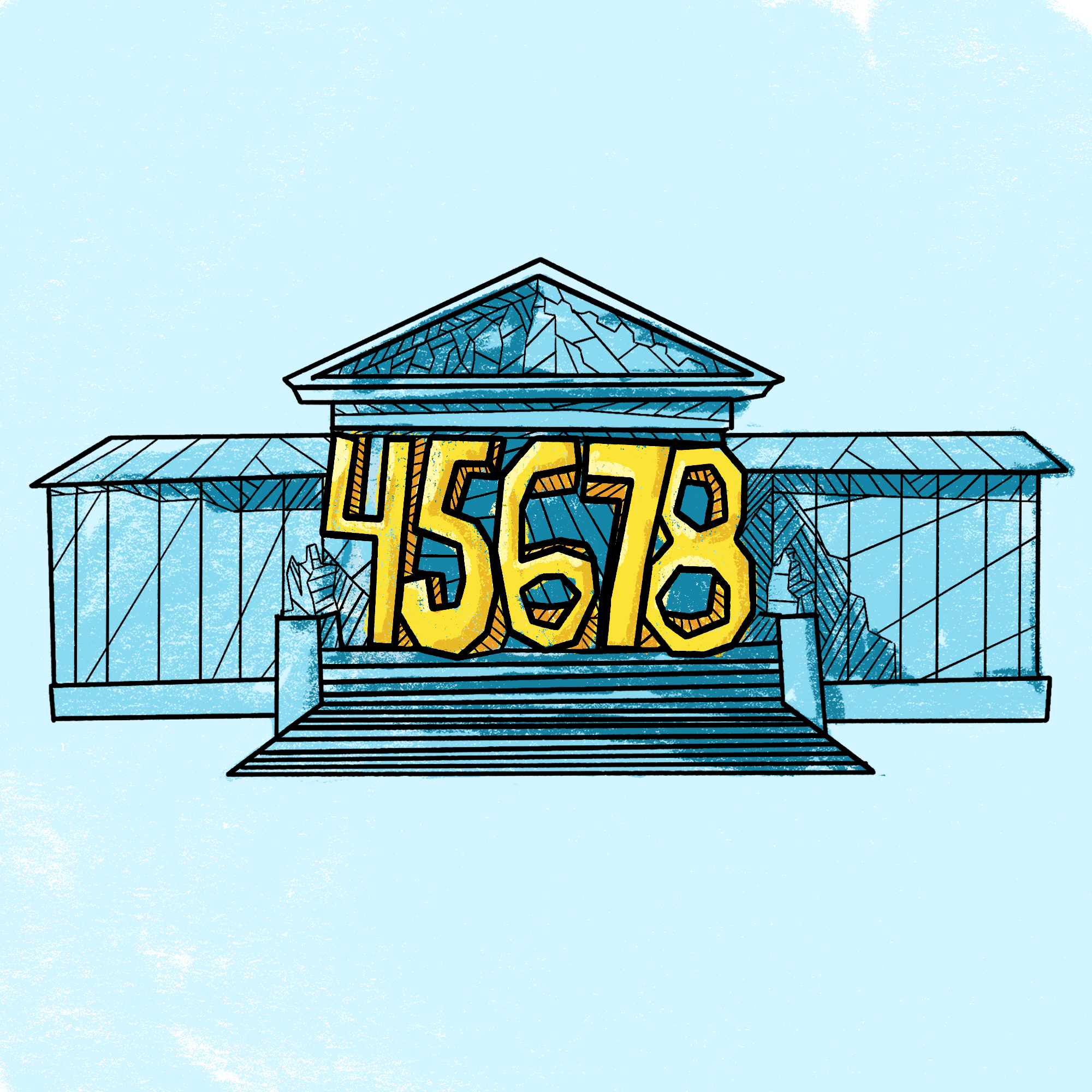
What it says: " The enumeration in the Constitution, of certain rights, shall not be construed to deny or disparage others retained by the people." Read the full amendment at constitutioncenter.org
What it means: The Ninth Amendment clarifies that those rights not specifically mentioned in the Constitution are not necessarily denied to the people. (Ratified December 15, 1791)
At More Perfect, we affectionately call this one the “cover-your-ass” amendment. At the founding, some people were against having a Bill of Rights because they were afraid that it would limit their personal freedom. Basically, they thought that if we wrote down a handful of specially protected rights, then the rights not listed (the “non-enumerated” rights) would be in danger. To ease those fears, James Madison decided we should cover our asses! The Ninth Amendment is there as a catch-all, reminding Americans that our rights as citizens and human beings emanate beyond what is actually written down in the Constitution.
Read the lyrics to The Kominas' song here
RIGHTS RESERVED TO STATES OR PEOPLEWhat it says: "The powers not delegated to the United States by the Constitution, nor prohibited by it to the States, are reserved to the States respectively, or to the people." Read the full amendment at constitutioncenter.org
What it means: The 10th Amendment expresses the concept of federalism: the relationship between the federal and state governments. (Ratified December 15, 1791)
The 10th Amendment says that all of the powers that are not specifically given to the federal government in the Constitution, nor specifically prohibited to the states, belong to the states or to the people. This is the amendment that's invoked whenever states think the federal government has butted too far into their territory. In practice, it means that the federal government cannot compel states to enforce federal laws.
Lean Year by Ebru YildizBack in the late 1700s, the 10th Amendment was crucial in getting states to accept the new Constitution. Signing the document would cause a dramatic change for the 13 states. Before, states were very powerful, loosely united by something called The Articles of Confederation. The central government was pretty weak under the Articles, and it had a hard time getting states to do much of anything. The Constitution created an alternative form of government with a much stronger central government. Many people who felt allegiance to their states were extremely skeptical of this arrangement, so Madison wrote the 10th Amendment to reassure them that states wouldn’t lose all their power. For that reason, this amendment is sometimes called the “states’ rights” amendment.
There are ways the federal government has gotten around the 10th Amendment. The Supreme Court has ruled that the federal government can encourage states to enforce its laws. For example, in South Dakota v. Dole, the Supreme Court held that the government could provide an incentive – in this case, funding for highway maintenance - if the state elects to set the drinking age at 21, but they cannot otherwise compel the states to legislate.
Read the lyrics to Lean Year's 10th Amendment song here.
What it says: "The Judicial power of the United States shall not be construed to extend to any suit in law or equity, commenced or prosecuted against one of the United States by Citizens of another State, or by Citizens or Subjects of any Foreign State." Read the full amendment at constitutioncenter.org
What it means: The 11th Amendment set limits on when a state can be sued. In particular, it gave immunity to states from lawsuits from out-of-state citizens and foreigners not living within the state borders. (Ratified February 7, 1795)
The 11th amendment was initially passed for similar reasons that the 10th was passed: to reassure people who feared a devastating loss of state power under the new Constitution. When the Constitution was first being ratified, states were promised this kind of protection from certain lawsuits. However, just a few years after we passed the Constitution, The Supreme Court denied them immunity in a case called Chisholm v. Georgia. The 11th then overturned this case.
Over time, the Supreme Court has expanded the 11th Amendment to mean that states have immunity from lawsuits by their own people (in addition to out-of-staters and foreigners). Of course, in practice, states do get sued today — there are exceptions to this immunity which protect people's rights under the 14th and 15th Amendments, which were ratified almost a century after the 11th.
Read the lyrics to Field Medic's 11th Amendment song here.

What it says: "The Electors shall meet in their respective states and vote by ballot for President and Vice-President, one of whom, at least, shall not be an inhabitant of the same state with themselves; they shall name in their ballots the person voted for as President, and in distinct ballots the person voted for as Vice-President. " Read the full amendment at constitutioncenter.org
What it means: The 12th Amendment ensures that the Electoral College casts votes for president and vice president separately, rather than having a system where the vice-presidency automatically goes to whoever places second in the presidential race. (Ratified June 15, 1804)
Before the United States had the 12th Amendment, the vice-presidency was awarded to the presidential runner-up. The 12th Amendment was finally ratified after two very confusing and messy presidential elections. One was in 1796, where the first- and second-place winners, who then became President and Vice President, were from opposing parties. AWKWARD. The second was in 1800, where two people from the same party, Aaron Burr and Thomas Jefferson, tied for first place (shoutout Hamilton). The House had to vote 36 times before the tie was broken. After that huge ordeal, the two men ended up having to work together: Jefferson as president, Burr as Vice President.
Just four years later, the 12th amendment was added to prevent that awkward situation from ever happening again. Can you even imagine today’s presidential runner-up having to be the winner’s vice president?
Read the lyrics to The Octopus Project's 12th Amendment song here.
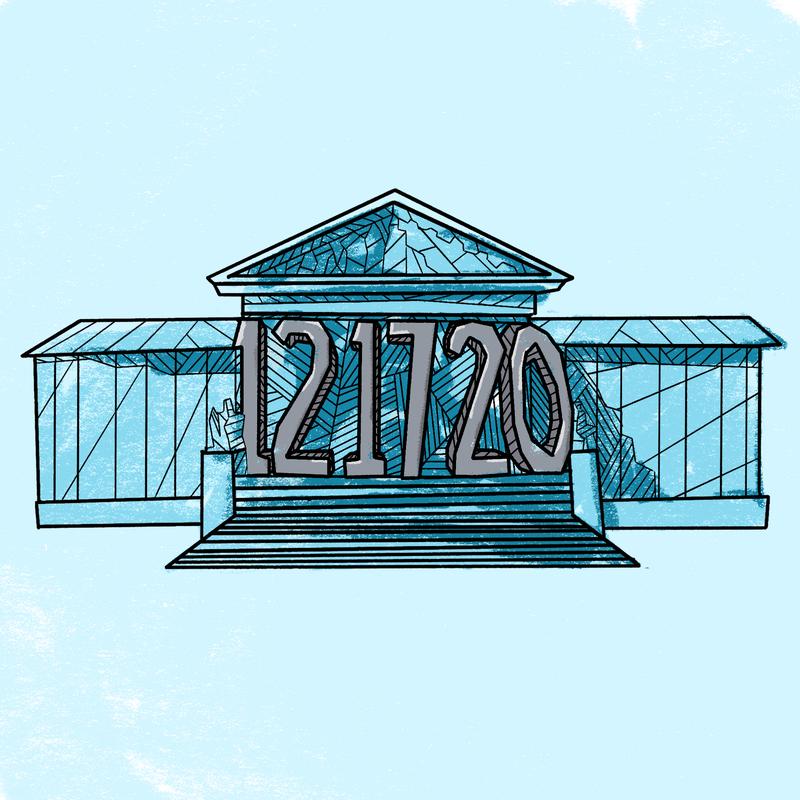
What it says: "Neither slavery nor involuntary servitude, except as a punishment for crime whereof the party shall have been duly convicted, shall exist within the United States, or any place subject to their jurisdiction. " Read the full amendment at constitutioncenter.org
What it means: Ratified at the end of the Civil War, the 13th Amendment abolished slavery and involuntary servitude and spelled out that Congress had the power to enforce and write laws to ensure slavery stopped. It did, however, state that you could work against your free will and without pay if you were convicted of a crime. (Ratified December 6, 1865)
The 13th Amendment, along with the 14th and 15th, make up the "Reconstruction" Amendments. Taken together, they represent "Constitution 2.0." This amended and improved version of the Constitution slowly extended rights and freedoms to all Americans, not just the white male landowners preferred by the original document. It also dramatically altered the relationship between the federal and state governments. Only after this change did the federal government begin to protect individual rights against intrusion by the states.
The 13th Amendment led to slavery by another name, slavery through incarceration. Today, criminals who work do get paid small amounts, but the pay can go to the prison for expenses and childcare, as well as victim funds.
Kash Doll by Luis MazonKash Doll, a Detroit native, was inspired to write her 13th Amendment song about mass incarceration:
"We thought this would be the one that would end it
But we still harassed
Still mass incarcerations
So much for the emancipation proclamation"
Bette Smith by Shervin LainezBette Smith said she wrote her 13th Amendment song, which she calls "Happy Warrior," from the the point of view of the overcomer. "I wrote the song from a vantage point. that we're already free deep within our hearts," Smith said. "Wherever you are and whatever situation you find yourself, you can be at peace. You can find in your mind a place a freedom, a place of solitude. When you're truly mentally liberated, nothing can enslave you."
Read the lyrics to Kash Doll's song here and Bette Smith's song here.
CITIZENSHIP RIGHTS, EQUAL PROTECTION, APPORTIONMENT, CIVIL WAR DEBTWhat it says: "All persons born or naturalized in the United States, and subject to the jurisdiction thereof, are citizens of the United States and of the State wherein they reside. No State shall make or enforce any law which shall abridge the privileges or immunities of citizens of the United States; nor shall any State deprive any person of life, liberty, or property, without due process of law; nor deny to any person within its jurisdiction the equal protection of the laws. " Read the full amendment at constitutioncenter.org
What it means: The 14th Amendment created birthright citizenship in the U.S., allowing for citizenship to be race-blind for the first time in U.S. history. It prohibits states from reducing the privileges and immunities that come with being a citizen. It also guarantees to each citizen the “right to due process” and “the equal protection of the law.” (Ratified July 28, 1868)
Arguably, the 14th Amendment was meant to deal with very specific problems resulting from the Civil War and the emancipation of slaves. Were former slaves citizens? (Answer: Yes). Were former rebels citizens? (Answer: Yes, except for the Confederate leadership). Would the Union be required to pay for the debts racked up by the Confederate states? (Answer: Nope).
It's an Amendment that is obsessed with the immediate concerns of 19th century post-war America, yet it has become a beating heart of modern Constitutional law. For women, LGBTQ people, and racial or ethnic minorities, the Fourteenth Amendment is the primary constitutional defense against discrimination and oppression by the government. Thurgood Marshall used the 14th Amendment to fight for racial equality in cases like Brown v. Board of Education, which desegregated schools. Later, Ruth Bader Ginsburg took up Marshall’s tradition and used the 14th to fight for gender equality in a series of cases in the 1970s. And in 2015, the Supreme Court cited the 14th Amendment to uphold the right to same-sex marriage.
Sarah Kay by Emily JulianSarah Kay's poem, inspired by the 14th Amendment, tells the story of her grandmother, who was interned during World War II in a Japanese American Internment camp. Despite the 14th Amendment's equal protection clause, the Supreme Court upheld the internment of U.S. citizens based solely on their Japanese heritage in a case called Korematsu v. United States. In 2018, the Supreme Court said Korematsu was "wrong the day it was decided." The Court went on to uphold President Trump's controversial travel ban in Trump v. Hawaii. "Korematsu has nothing to do with this case," wrote the majority. In a dissenting opinion, Justice Sotomayor accused the majority of "redeploying the same dangerous logic underlying Korematsu" when they upheld the ban.
"I spend a lot of time now wondering what it means to pledge allegiance to a country that does not pledge allegiance to you," Kay said. "That's what I think about when I think about the 14th Amendment."
Read Sarah Kay's poem on the 14th Amendment here.
RIGHT TO VOTE NOT DENIED BY RACEWhat it says: "The right of citizens of the United States to vote shall not be denied or abridged by the United States or by any State on account of race, color, or previous condition of servitude. " Read the full amendment at constitutioncenter.org
What it means: The 15th Amendment granted all men the right to vote regardless of race, color, or whether they had been slaves. (Ratified February 3, 1870)
Before the 15th Amendment, in order to participate in federal elections, you had to be eligible to vote in your state. And states were in complete control over their election rules.
The 15th Amendment changed that — and it gave Congress the authority to regulate state elections for the first time. But Congress left other racial barriers to voting in place, like poll taxes and literacy tests. Finally, in 1965, Congress passed the groundbreaking Voting Rights Act, putting the 15th Amendment to use and giving it some teeth.
Read the lyrics to Aisha Burns' song here and Nnamidi Ogbonnaya's song here.
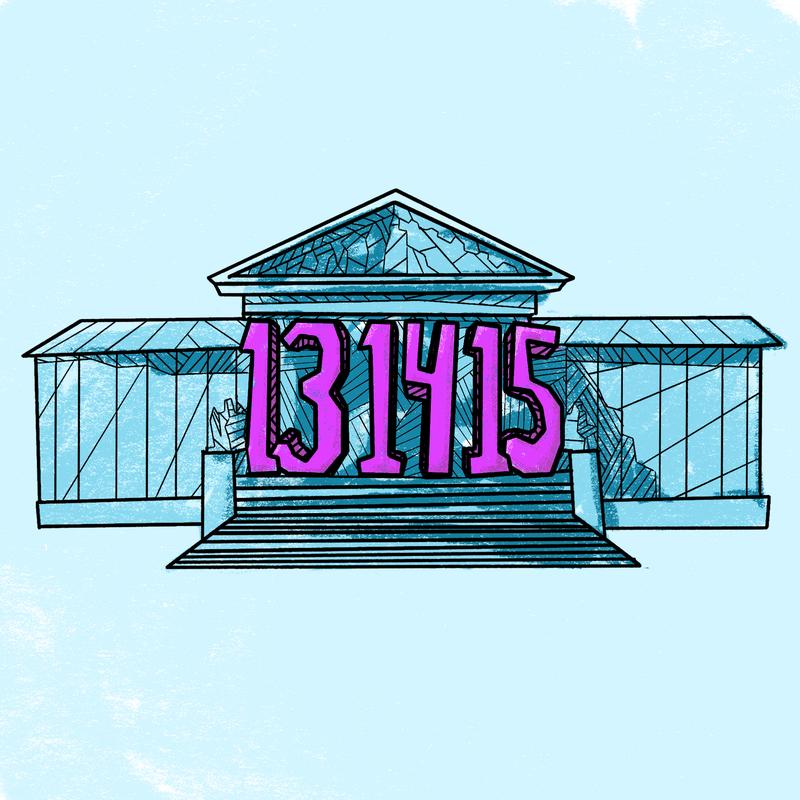
What it says: "The Congress shall have power to lay and collect taxes on incomes, from whatever source derived, without apportionment among the several States, and without regard to any census or enumeration." Read the full amendment at constitutioncenter.org
What it means: The 16th Amendment gave the federal government the power to reach into each citizen’s pocket and tax a percentage of our income. (Ratified February 3, 1913)
Before this practice was allowed, the government received money mostly from tariffs, or taxes on imported and exported goods. Over the years, the federal government had periodically taxed incomes, but the Supreme Court decided this was unconstitutional in 1895.
However, over time, the need for an income tax grew. The global economy as well as the Progressive movement put pressure on the government to lower tariffs. Meanwhile, the government’s need for revenue grew. Because of these combined pressures, in 1913, we finally ratified the 16th Amendment.
The strength of the federal government, both in its ability to project power militarily and domestically, was forever changed by the 16th Amendment. The New Deal, the military-industrial complex, and Obamacare are here because of the federal government's power to tax incomes.
Read the lyrics to Post Animal's 16th Amendment song here.
POPULAR ELECTION OF SENATORSWhat it says: "The Senate of the United States shall be composed of two Senators from each State, elected by the people thereof, for six years; and each Senator shall have one vote. The electors in each State shall have the qualifications requisite for electors of the most numerous branch of the State legislatures. " Read the full amendment at constitutioncenter.org
What it means: The 17th Amendment changed the way Senators are picked. It made it so each state’s Senators are elected directly by the people. Before this amendment was passed, Senators were chosen by our state legislatures. (Ratified April 8, 1913)
The old way of picking Senators — through state legislatures — proved problematic: Senators were often chosen in back-room deals, where state legislators could be bribed and intimidated by Big Business and other insiders. The result was that the hand-picked Senators were not serving the people. The 17th Amendment ensured that the senators were loyal to their constituents rather than outside interest groups by making them democratically elected.
Today, the 17th Amendment is the reason that celebrity figures like Kid Rock could even consider (or claim to be) running for Senator: it’s hard to imagine a state legislature picking a country rock star to represent them. But while the old way of electing Senators — by politicians instead of people — is anti-democratic on its face, the Founders had their reasons. The House of Representatives was supposed to be the "people's" body. It was the branch most beholden to popular will. The Senate was thought of as one step removed from that. It was supposed to be a more contemplative body, insulated from the whims of the people — and one that represented the states. From that perspective, it made sense to have Senators chosen by the state legislatures, instead of the people themselves. But ultimately, we decided the problems that came along with this indirect method of choosing Senators outweighed the benefits.
Read the lyrics to Stef Chura's song here and Donny Dinero's song here.
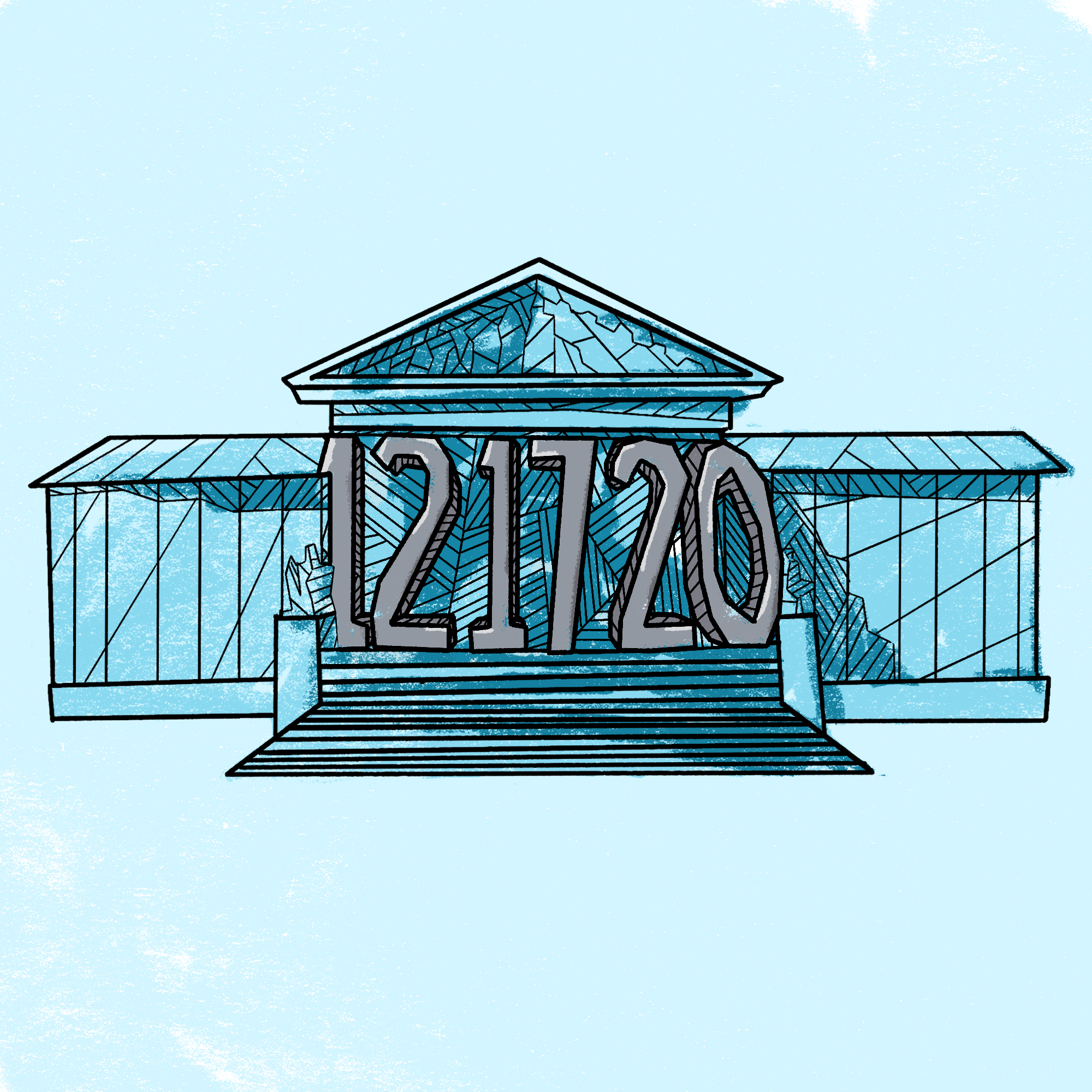
What it says: "After one year from the ratification of this article the manufacture, sale, or transportation of intoxicating liquors within, the importation thereof into, or the exportation thereof from the United States and all territory subject to the jurisdiction thereof for beverage purposes is hereby prohibited. " Read the full amendment at constitutioncenter.org
What it means: The 18th Amendment made it illegal to sell or transport alcoholic drinks, but it did not prohibit the private consumption of alcohol. (Ratified January 16, 1919)
Various reform groups, including the Women’s Christian Temperance Union and the Anti-Saloon League, argued that alcohol was causing various social and moral ills, as it enabled many working-class men to waste away their salaries by buying drinks at the saloon instead of supporting and spending time with their families.
Read the lyrics to The Slants' 18th & 21st Amendments song here.
What it says: "The right of citizens of the United States to vote shall not be denied or abridged by the United States or by any State on account of sex." Read the full amendment at constitutioncenter.org
What it means: The 19th Amendment gave women the right to vote, also called suffrage. (Ratified August 18, 1920)
Before the 19th, the idea was that women could have their voices heard only “by proxy:” the men in their lives (husbands and fathers, mostly) would listen to their opinions and take them into consideration when it came time to cast a ballot. But (surprise!) family members didn’t always see eye-to-eye, and on voting day, the men always got final say. This meant that men passed a lot of laws — about property rights and divorce, for example — that made women’s lives a lot harder. Because of that, women’s rights activists known as “suffragettes” launched a decades-long campaign to get women the right to vote, and in 1920, with the passing of the 19th amendment, they succeeded.
Read the lyrics to Dolly Parton's 19th Amendment song here.
What it says: "The terms of the President and the Vice President shall end at noon on the 20th day of January, and the terms of Senators and Representatives at noon on the [3rd] day of January, of the years in which such terms would have ended if this article had not been ratified; and the terms of their successors shall then begin. " Read the full amendment at constitutioncenter.org
What it means: The 20th Amendment clarifies when the outgoing president must depart and the incoming president must be inaugurated. It also gives exact dates of the term of Congress. (Ratified January 23, 1933)
The 20th is the lame duck amendment. A “lame duck,” in this case, is a president (or any politician) who has already been voted out of office, but still hasn’t left yet. For much of our nation’s history, we were left with a large gap of time between when new politicians were elected and when they were actually scheduled to take office. This was because of a weird scheduling error made at the founding. In the case of newly elected presidents, the lame duck period was about four months, and in the case of Congresspeople, they had to wait over a year!
Imagine that on the first Tuesday in November, after a new president gets elected, the old one has to put on a big, weird duck costume and wear it until they leave office in January. That’s not what happens; there’s no duck suit. But the lame duck period is still a weird time! On the one hand, the president doesn’t have much time left to get stuff done. But on the other hand, they have nothing to lose! Without having to worry about getting re-elected, they can make unpopular decisions without worrying about public opinion. In the early days of the U.S., that sometimes meant presidents and members of Congress would use their power do favors for their rich friends. That’s not a great look, so the 20th Amendment was passed, limiting the “lame duck period” to just a couple months.
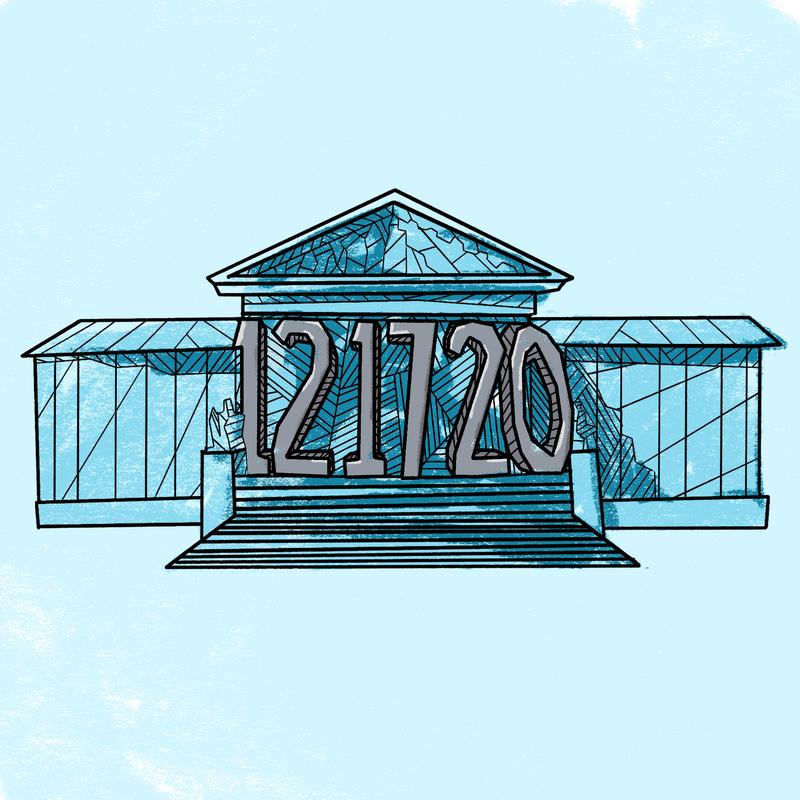
What it says: "The eighteenth article of amendment to the Constitution of the United States is hereby repealed. " Read the full amendment at constitutioncenter.org
What it means: The 21st Amendment repealed the 18th Amendment. (Ratified December 5, 1933)
JK! The problems with Prohibition could be seen almost immediately, and we hit undo. The most glaring problem was the “black market” for alcohol that led to violent crime and excessive prices.
Imagine the same thing happened today, but it was a prohibition on cell phones. As soon as the prohibition-to-be is announced, rich people get out ahead, buying up all the phones. And when the ban actually starts, those same people start selling marked-up phones on Craigslist to anyone who couldn’t afford to buy one before the ban started. A few years go by. Now, even those overpriced Craigslist phones are almost sold out, so people begin to try making DIY cell phones at home. But they’re not trained in wiring! People start getting electrocuted left and right. Disaster, disaster! Undo, undo!
That’s basically what happened in Prohibition – wealthy people purchased a lot of alcohol before the law took effect and sold it at a marked-up price to those who could not afford to take the same precautions. Then, “moonshiners” began brewing their own forms of alcohol that were untested and unsafe due to the lack of traditional regulations. As a nation, we saw the error of our ways and reversed course with the 21st Amendment.
Read the lyrics to The Slants' 18th & 21st Amendments song here.
TWO-TERM LIMIT ON PRESIDENCYWhat it says: "No person shall be elected to the office of the President more than twice, and no person who has held the office of President, or acted as President, for more than two years of a term to which some other person was elected President shall be elected to the office of President more than once. But this Article. " Read the full amendment at constitutioncenter.org
What it means: The 22nd Amendment limits the president to only two four-year terms in office or a maximum of ten consecutive years. (Ratified February 27, 1951)
Looking back, it might be surprising that for most of U.S. history, we didn’t have any limit to how long a president could serve. At the end of the American Revolution, we knew we didn’t want a king, but there wasn’t really any other blueprint for how things should work. Some people thought our first president George Washington would serve for life! But George Washington had other plans. G.W. was very aware that everything he did would set a tone for the new republic. In a 1790 letter, he wrote,
“I walk on untrodden ground. There is scarcely any action, whose motives may not be subject to a double interpretation. There is scarcely any part of my conduct [which] may not hereafter be drawn into precedent.”
So at the end of his second term as president, Washington stepped down, setting a precedent for a two-term max on the presidency.
Fast-forward to 1940. Our 32nd president, Franklin Delano Roosevelt, became the first to get elected for a third… and then a fourth term. The U.S. was caught up in the Great Depression, and then we became entangled in the Second World War. The people wanted a strong leader to guide them through, so we kept re-electing FDR. But when he died in his fourth term, we, as a nation, decided that maybe we’d gone too far. The 22nd Amendment made official the precedent that George Washington set almost 150 years before.
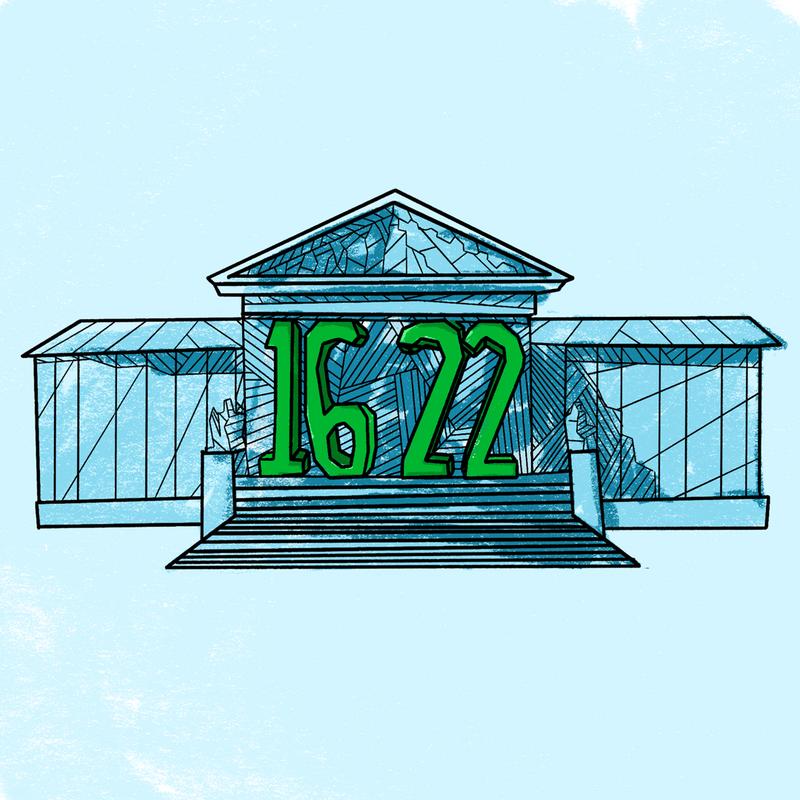
What it says: "The District constituting the seat of Government of the United States shall appoint in such manner as Congress may direct: A number of electors of President and Vice President equal to the whole number of Senators and Representatives in Congress to which the District would be entitled if it were a State, but in no event more than the least populous State. " Read the full amendment at constitutioncenter.org
What it means: The 23rd Amendment gives Washington, D.C., three representatives in the Electoral College, giving citizens of the District a vote for president even though they are not officially part of a state. (Ratified March 29, 1961)
The District of Columbia, or Washington, D.C., is a 68.34 sq. mile stretch of land in the U.S. that is not quite a state. About 700,000 people live there: they’re subject to U.S. law and they pay federal income taxes. But until 1961, D.C. residents couldn’t vote for president. The 23rd Amendment fixed that, giving the District three votes in the electoral college.
Although the 23rd was a step in the right direction, some D.C. residents think it didn’t go far enough. D.C.’s single Congressional representative is non-voting: she can try to convince other politicians to cooperate, but she can’t actually cast a vote to represent the interests of the folks in her district. Since 2000, official D.C. license plates have protested that fact, borrowing from a slogan used by the American rebels in the Revolutionary War against the British: “Taxation Without Representation.”
What it says: "The right of citizens of the United States to vote in any primary or other election for President or Vice President, for electors for President or Vice President, or for Senator or Representative in Congress, shall not be denied or abridged by the United States or any State by reason of failure to pay poll tax or other tax. " Read the full amendment at constitutioncenter.org
What it means: The 24th Amendment ended mandatory fees to vote in federal elections. Before the amendment, there was a “pay to vote” system that was put in place to prevent African Americans in the South from voting. (Ratified January 23, 1964)
The poll tax was a fee that voters had to pay before they could vote. It was said to prevent voter fraud, but in reality, it was used — along with intimidation and violence — to minimize political power of African Americans and poor whites in the South. In 1964, a poll tax cost about $1.50, the equivalent of about $12 today. A $1.50 fee might not be a big deal to a wealthy white voter, but for many black southerners, that was a huge barrier. The 24th amendment was an important milestone in the Civil Rights Movement.
The 24th Amendment got rid of the federal poll tax in 1964. However, some people argue that the poll tax has reverberations today in other forms. Critics of Voter ID mandates say they put a burden on voting that makes it harder for poor people and people of color to cast a ballot. Proponents of those laws say they are important in preventing voter fraud.
Read the lyrics to Caroline Shaw's song here and Kevin Morby's song here.
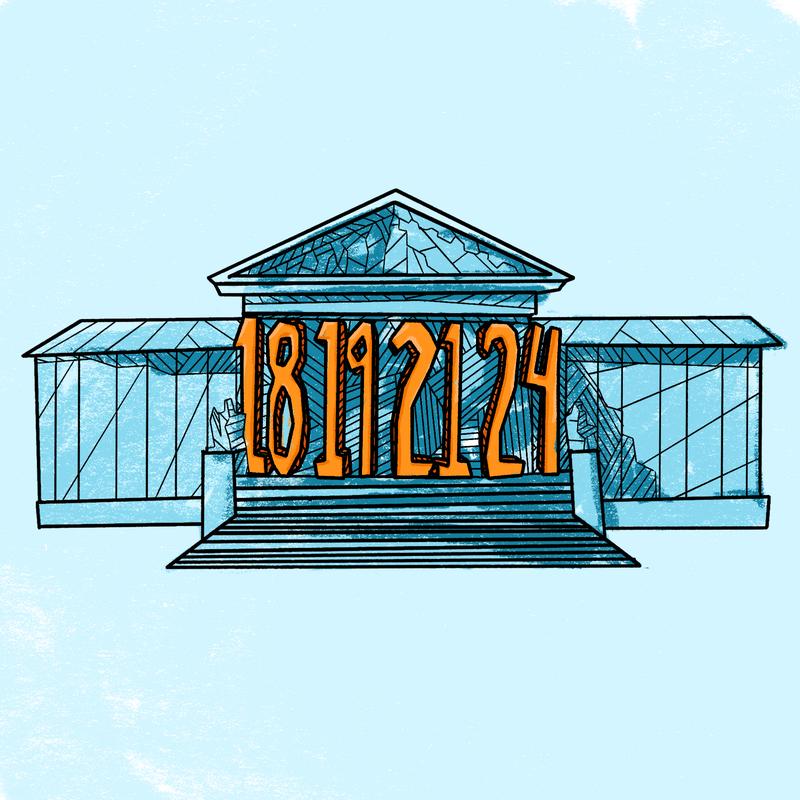
What it says: "In case of the removal of the President from office or of his death or resignation, the Vice President shall become President. " Read the full amendment at constitutioncenter.org
What it means: The 25th Amendment defines presidential succession if something should happen to the president. It also spells out who would replace the president-elect if he was not able to fulfill his duties. (Ratified February 10, 1967)
This is a what-if amendment. What if the president dies in office? What if they’re unconscious, sick, or mentally unable to lead? Well, in that case, the vice president would have to step in, right? But what if there’s no vice president to take over?
Kinda dark, but these are important questions. By 1967, when the 25th was passed, one vice president had resigned, seven had died in office, and eight had left their posts to take over for dead presidents. When JFK was assassinated in 1963, people started thinking very seriously about this possibility. The 25th Amendment made an official plan: if a president dies or is incapacitated, the vice president steps in, at which point the new president needs to appoint a new VP. That way, the office is hopefully never vacant, and we won’t be left asking random people on the street to lead our country. Where the 25th Amendment is less clear is on what counts as presidential “inability” and who gets to decide.
Watch the amazing animated music video for Devendra Banhart's 25th Amendment song Devendra Banhart!
What it says: "The right of citizens of the United States, who are eighteen years of age or older, to vote shall not be denied or abridged by the United States or by any State on account of age. " Read the full amendment at constitutioncenter.org
What it means: The 26th Amendment set the national voting age at 18. (Ratified July 1, 1971)
For much of American history, the voting age was decided by individual states, and that age was historically 21. But starting with World War II, in 1971, the Vietnam War was raging, and men as young as 18 were being drafted and killed in combat: it seemed pretty unfair to keep these young men from voting, when some of them were dying for their country. Georgia became the first state to lower its voting age to 18 in 1943. There was a By the time of the Vietnam War, there was a growing sense that if someone was old enough to fight, they were old enough to vote. The 26th Amendment was proposed on March 23, 1971 and ratified less than four months later on July 1, 1971: the fastest ratification ever!

What it says: "No law, varying the compensation for the services of the Senators and Representatives, shall take effect, until an election of representatives shall have intervened." Read the full amendment at constitutioncenter.org.
What it means: The 27th Amendment mandates that congressional salary changes cannot take place until the beginning of the next session of Congress. (Ratified May 7, 1992)
The 27th Amendment was proposed in September 1789 and passed in May 1992. You read that right: over 200 years passed between proposal and ratification. Yep, that's an American record.
The 27th might never have been ratified if it weren’t for a University of Texas college sophomore named Gregory Watson. Watson found the proposed amendment when he was researching a college paper in 1982. Watson argued that the amendment could be passed today because 1) the people who wrote the amendment never put a time limit on how quickly it had to be ratified, and 2) it was a really good idea. Under the original Constitution, Congress could vote to raise their own salaries, and the salary change could take effect during the same term when they voted for it. Which feels like *ahem* a conflict of interest. The idea in this proposed amendment was that any salary changes in Congress should go into effect after the current term. That way, a representative would need to seek re-election from the people before claiming their raise. Less greed, more accountability: great.
Watson wrote a paper about why the 27th amendment could and should be ratified today, and he got… a C. His professor wasn’t convinced. Nevertheless, he launched a years-long campaign to convince everybody else, and by 1992 he had 38 states on board. The 27th Amendment was finally ratified. More Perfect gives Gregory Watson an honorary A+.
“27: The Most Perfect Album” was produced by Jad Abumrad, Suzie Lechtenberg, Julia Longoria, Alex Overington, Kelly Prime, and Sarah Qari.
This album wouldn’t have been possible without Nora Keller. Thank you, Nora. You rule.
Website by Linsey Fields and Mike Morisco.
Artwork by Luis Mazón.
Special thanks to Nabil Ayers, Ana Calderon, Chase Culpon, Janna Freed, David Gebel, Chris Hardtman, Jim Jazwiecki, Joe Lambert, Allison Orr Larsen, Celia Muller, Elie Mystal, Erin Ozmat, Valentina Powers, George Wellington, Christina Yugai, and Sean Zimmer.